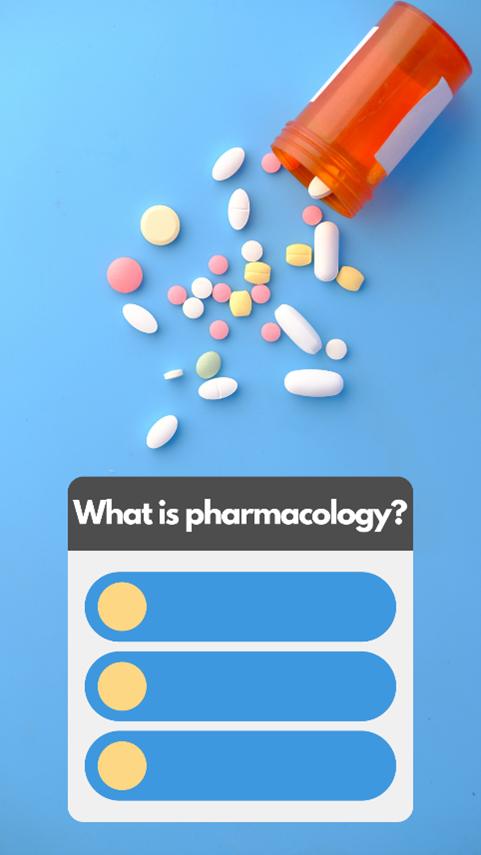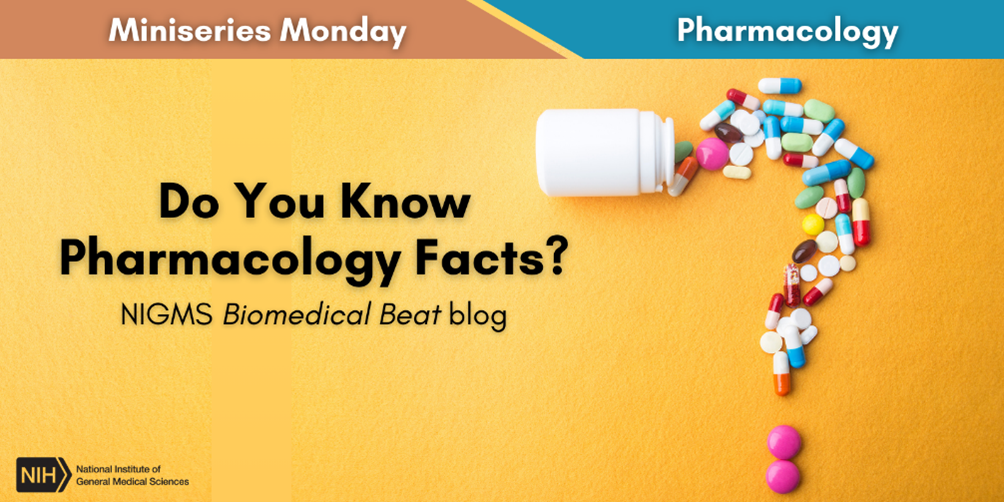
Pharmacologists research how the body acts on medicines (e.g., absorption, excretion) and how medicines act in the body, as well as how these effects vary from person to person. NIGMS-funded pharmacology researchers are:
- Conducting research to design medicines with fewer side effects
- Exploring how genes cause people to respond differently to medicines
- Developing new methods and molecular targets for drug discovery
- Discovering medicines based on natural products
- Understanding how medicines act using computers
- Monitoring brain function under anesthesia to develop safer anesthetic medicines that reduce side effects
- Creating artificial tissue to heal muscles after traumatic injuries
- Investigating how to treat patients with sepsis
- Measuring tissue damage from burns to help improve treatment options
Test your pharmacology knowledge with the quiz below.
Results
Share...
Share...
#1. What is the branch of pharmacology that studies how the body affects medicines?
The correct answer is D. Pharmacokinetics is the study of how the body acts on a medicine, including how it gets into the body, to the active site, and out of the body.
Share...
#2. What is the branch of pharmacology that studies the effects of medicines on the body?
The correct answer is B. Pharmacodynamics is the study of how a medicine acts in the body—both at its intended target and throughout all the organs and tissues in the body.
Share...
#3. What is a branch of pharmacology that studies how a person’s DNA affects their response to medicine?
The correct answer is C. Pharmacogenetics is the study of how a single gene affects the body’s response to medicine. (The related branch of pharmacogenomics is the study of how an entire genome affects that response.)
Share...
#4. For a medicine to be effective, it must get into your body (absorption), get to the active site (distribution), and eventually leave your body (excretion). These are three of the four main pharmacokinetic properties described in the term ADME. What's the fourth?
The correct answer is B. The term ADME includes absorption, distribution, metabolism, and excretion. Enzymes often metabolize medicines, breaking them down into metabolites that are more easily excreted from the body.
Share...
#5. Most medicines work by binding to a molecular target and blocking or supporting its natural activity. Medicines that block an enzyme's actions are called inhibitors. What are medicines called that block receptors?
The correct answer is D. Antagonists bind to receptors and block other molecules from activating them. Molecules that activate receptors, even partially, are called agonists.
Share...

Find the teaching activity that corresponds with this post in our Educator’s Corner.










